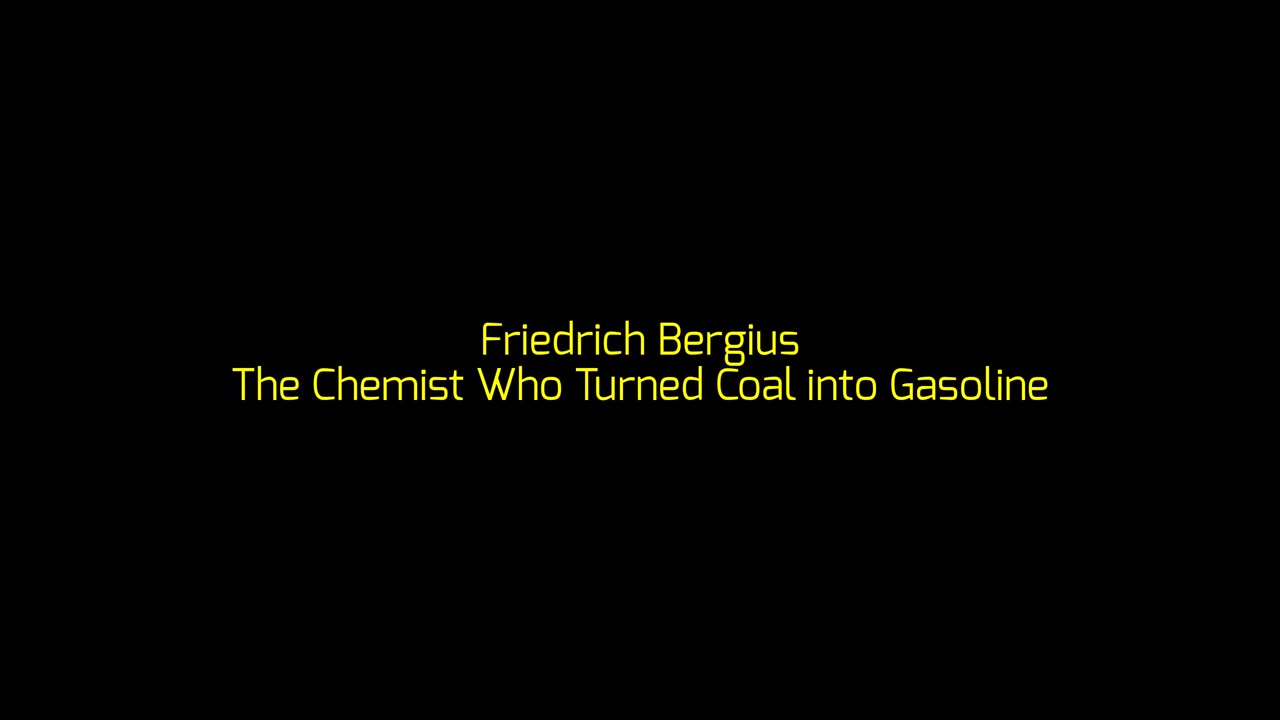Premium Only Content

Friedrich Bergius: The Chemist Who Turned Coal into Gasoline
On October eleventh, eighteen eighty-four, Friedrich Karl Rudolf Bergius was born in Breslau, Germany (now Wrocław, Poland). He was a chemist and inventor, and his academic field was industrial chemistry and high-pressure chemical technology.
Bergius is best known for his pioneering development of the coal hydrogenation process, also known as the Bergius process. In the early nineteen-hundreds, he worked on chemical reactions under extremely high pressure. His major breakthrough came when he discovered that powdered coal could be converted into liquid hydrocarbons, such as gasoline and diesel, by treating it with hydrogen under very high pressure and at high temperatures. This process made it possible to produce synthetic fuel from abundant coal resources, which had enormous strategic and industrial importance, especially for countries without large oil reserves. For this groundbreaking research on high-pressure chemical processes, Friedrich Bergius was awarded the Nobel Prize in Chemistry in nineteen thirty-one, jointly with Carl Bosch. His work laid the foundation for the modern petrochemical industry and synthetic fuel production.
-
 35:51
35:51
Athlete & Artist Show
1 day ago $7.66 earnedIs Ryan Smith The Best Owner In The NHL?
33.8K4 -
 22:56
22:56
American Thought Leaders
2 days agoCharles Murray: I Thought Religion Was Irrelevant to Me. I Was Wrong.
25.7K6 -
 36:22
36:22
Brad Owen Poker
6 hours agoGIGANTIC $17,000+ Pot In BOBBY’S ROOM! TRAPPING Top Pro w/FULL HOUSE!! Big Win! Poker Vlog Ep 326
30.8K -
 3:53
3:53
NAG Daily
23 hours agoRUMBLE RUNDOWN: DREAM HACK SPECIAL W/Greenman Reports
22.1K6 -
 1:28
1:28
Damon Imani
2 days agoThey Laughed at Trump’s Cognitive Test — Damon Made Them REGRET It!
32.4K12 -
 9:14
9:14
Freedom Frontline
1 day agoAdam Schiff PANICS As Eric Schmitt Exposes His Dirty Lies LIVE
21.4K36 -
 10:32
10:32
GBGunsRumble
1 day agoGBGuns Armory Ep 153 Adler Arms AD-9`
14.3K2 -
 35:53
35:53
Degenerate Plays
5 hours ago $0.54 earnedRuckus Randy And Repair Ronald (Socks On) - Call of Duty: Modern Warfare 2 (2009) : Part 7
9.25K1 -
 38:35
38:35
Stephen Gardner
1 day ago🔥What JUST leaked out of Congress. PROVES Trump RIGHT!!
102K141 -
 LIVE
LIVE
Total Horse Channel
18 hours ago2025 IRCHA Derby & Horse Show - November 2nd
58 watching